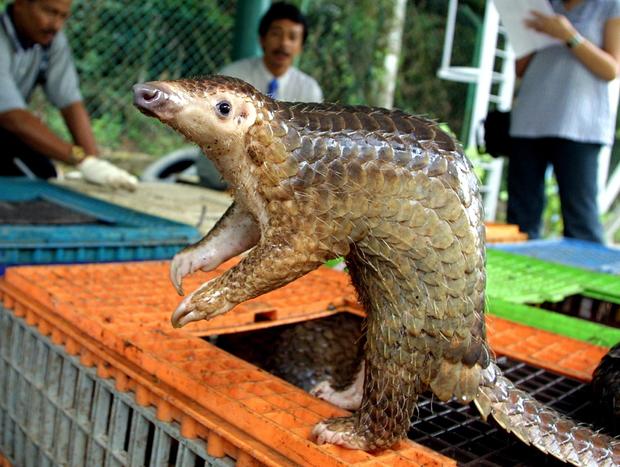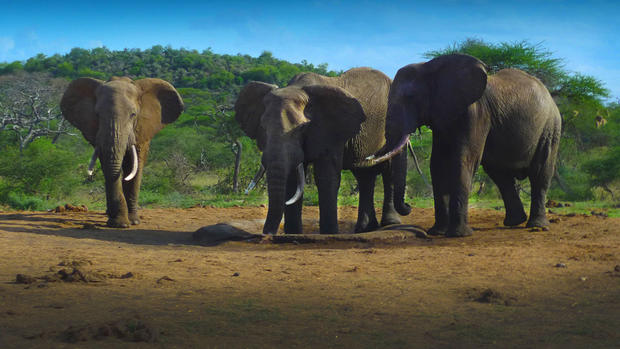The most endangered animal you've never heard of
In honor of World Wildlife Day, March 3, let us pay tribute to the lowly pangolin, the world's most trafficked mammal.
A scale-covered mammal found in Asia and Africa, all eight species of the pangolin are threatened with extinction due to high demand in East Asia for their meat, which is considered a delicacy, and their scales, which are used in traditional medicine.
According to the U.S. Department of State, despite legal protection, between 40,000 and 81,250 pangolins were killed for illegal trade in 2013. Experts say that over a million pangolins have been taken from the wild over the past decade.
"The very real possibility exists that they're going to be eaten to extinction," said animal behavior expert Heidi Quine.
World Wildlife Day was established in 2013 to help raise awareness of tales like this, of animals threatened by poaching, illegal trade and other forms of "wildlife crime."
In 2014, 1,215 rhinos were killed for their horns in South Africa, a record high, and 21 percent more than more than the previous year despite stepped up efforts against poaching. Around the continent, 25,000 elephants are lost to poachers each year due to the high demand for their tusks.
Though conservationists worldwide have far to go in the fight to stop poaching and other illegal activities, their campaigns are gaining international interest and some countries are making concerted moves to show their dedication. Kenya has imposed stricter penalties for poaching and Tuesday burned 15 tons of ivory and promised to destroy all of its stockpile this year, Reuters reports. And China recently imposed a first-ever one-year ban of ivory imports.
"Illegal trade in wildlife has become a sophisticated transnational form of crime, comparable to other pernicious examples, such as trafficking of drugs, humans, counterfeit items and oil. It is driven by rising demand, and is often facilitated by corruption and weak governance," said U.N. Secretary-General Ban Ki-moon in a statement.
"Illegal wildlife trade undermines the rule of law and threatens national security; it degrades ecosystems and is a major obstacle to the efforts of rural communities and indigenous peoples striving to sustainably manage their natural resources. Combatting this crime is not only essential for conservation efforts and sustainable development, it will contribute to achieving peace and security in troubled regions where conflicts are fuelled by these illegal activities."
He then invoked the World Wildlife Day credo: "It's time to get serious about wildlife crime."

